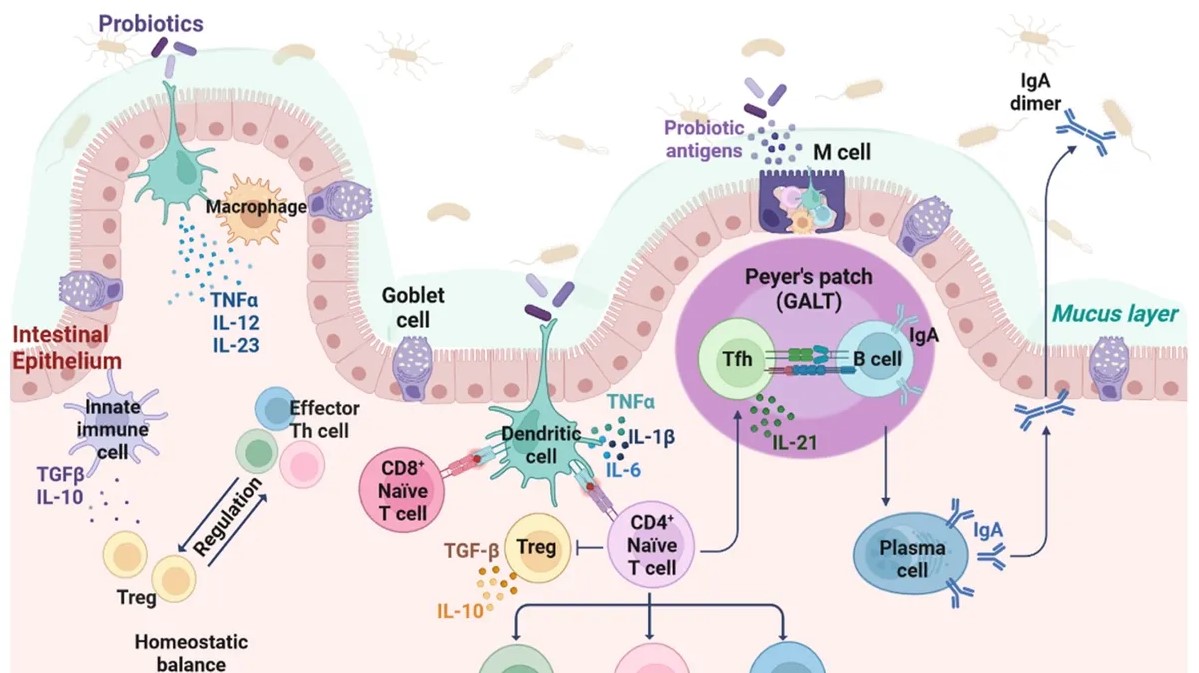The complex relationship between gut health and overall well-being has become an increasing focus for health-conscious individuals and researchers. At the core of this relationship lies the concept of the gut microbiome – a complex ecosystem of bacteria residing in our digestive system. One key element in nurturing this microbiome is probiotics, living microorganisms that provide various health benefits when consumed in sufficient quantities.
Understanding Probiotics and the Microbiome
Probiotics are living microorganisms that provide health benefits to the body by inhabiting the digestive tract. They are known to strengthen the body’s immunity, reduce the risk of infections, allergies, and even cancer, by enhancing both humoral and cellular immunity. They also have therapeutic potential and can be beneficial for gut health and inflammation. Studies have shown that they can have positive effects on respiratory tract allergic diseases and can be effective in treating acute pediatric diarrhea.
Understanding the microbiome and incorporating probiotic-rich foods or supplements into our lifestyles is crucial for a thriving gut microbiome. The microbiome consists of a diverse range of microorganisms, including bacteria, viruses, and fungi. Probiotics play a significant role in maintaining the balance of this micro-ecosystem, thereby contributing to optimal gut health.
Benefits of Probiotics: Beyond Gut Health
Probiotics offer benefits that extend beyond the gut. They aid digestion, influence neurotransmitter production, and boost immunity. They can also contribute to radiant skin, support oral and vaginal health, and counteract the potential dangers of antibiotic overuse. Some studies suggest that specific probiotic bacteria can alleviate symptoms of irritable bowel syndrome (IBS). Additionally, probiotics have shown potential in improving mental health, highlighting a strong ‘gut-brain’ connection.
The Future of Probiotics
The future of probiotics holds promise for the discovery of new bacterial species with health-promoting effects. One such species, Akkermansia muciniphila, is already under investigation. However, more clinical studies are required to confirm the beneficial effects of probiotics in the treatment of specific diseases.
Probiotics and Severe Acute Pancreatitis (SAP)
A meta-analysis assessing the efficacy and safety of probiotics in conjunction with early enteral nutrition for the treatment of severe acute pancreatitis (SAP) found that while probiotics did not significantly improve mortality rates or reduce the risk of organ failure, they notably shortened hospital stays. This suggests that probiotics could have a role in the management of SAP, and further studies are required to corroborate these findings.
Incorporating Probiotics into Your Lifestyle
Rich sources of probiotics include kefir, yogurt, sauerkraut, tempeh, and fermented foods. Kefir, in particular, surpasses yogurt with unique strains, benefiting digestion, immunity, bone health, and cancer prevention. Considerations about stomach acid’s impact on microbial growth, the influence of fasting, and the role of soil-based vegetables in promoting gut health are also noteworthy.
While probiotics offer numerous health benefits, it’s essential to remember that individual responses can vary. Consulting with a healthcare professional before starting any new dietary regimen or supplement is advisable.


